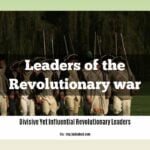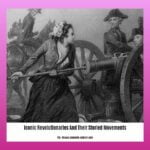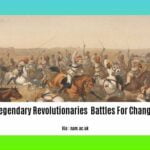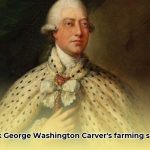Che Guevara: The name conjures images of a bereted figure, a symbol of rebellion. But the real story of Che is far more intricate than that ubiquitous image suggests. For insights into the daily life of historical figures, see genius routines. This is not a simple biographical sketch; rather, it’s a comprehensive exploration into the life of a man who transitioned from medicine to revolutionary leadership, leaving behind a complex and often contradictory legacy that continues to ignite debate. We’ll examine his formative years, his crucial role in the Cuban Revolution, his forays into revolutionary movements in other nations, and the profound, multifaceted repercussions of his actions on the world stage. This includes exploring his core ideologies, the consequences of his actions, and the enduring questions his life poses regarding revolution, the acquisition and exercise of power, and the very essence of fighting for change.
Che Guevara: From Doctor to Revolutionary Icon
From Medical Student to Revolutionary: A Life Less Ordinary
Ernesto “Che” Guevara’s life transcends a mere revolutionary narrative; it’s a deeply human story, replete with unexpected shifts and dramatic transformations. Born into a relatively affluent Argentinian family, Guevara’s early life provided scant indication of the global icon he was destined to become. His innate adventurous spirit initially steered him toward medicine, a career choice that ironically served as a catalyst in shaping his revolutionary ideals. During his medical studies, Che embarked on extensive travels throughout South America, directly confronting the pervasive poverty and profound inequality that plagued the region. These visceral experiences, far removed from the clinical environment of hospitals and academic texts, proved instrumental in nurturing his burgeoning resentment toward the existing societal structure. He directly observed the glaring disparities between affluence and destitution, a chasm that fueled his increasing dissatisfaction with prevailing political systems. This was not simply an abstract notion; it constituted a tangible, daily reality that he intimately witnessed and profoundly felt.
The Cuban Revolution: A Turning Point
Che’s involvement in the Cuban Revolution was transformative. Far from being a mere observer, he emerged as a pivotal strategist and military leader, working alongside Fidel Castro. His strategic acumen and tactical expertise proved invaluable in the struggle against the Batista regime. He played a crucial role in formulating and implementing key strategies that ultimately led to the revolution’s triumph. Che’s contribution was indispensable in securing victory. However, this period is also deeply contentious. While the revolution undeniably ushered in liberation for numerous Cubans, it also involved undeniable brutality. Allegations of summary executions and the establishment of oppressive labor camps present a radically different, far more complex picture than the sanitized, heroic narrative often portrayed. Was Che a bona fide liberator, or was he instead complicit in acts of violence and repression? His role in these pivotal events remains a focal point of contention among historians, engendering passionate debate even today. The reconciliation of the image of Che as a revolutionary hero with accusations of human rights violations remains among the most challenging aspects when attempting to comprehensively understand his complex legacy.
Guerrilla Warfare and Global Aspirations: Putting Theory into Practice
Guevara’s sphere of influence extended considerably beyond the confines of Cuba. His writings on guerrilla warfare, particularly his seminal work, “Guerrilla Warfare,” served as both an inspiration and an actionable manual for revolutionary movements worldwide. He expressed his philosophical underpinnings with a clarity that resonated with numerous radical groups. His ideas resonated profoundly with those seeking fundamental social change. However, translating his theories into effective practical action proved to be an exceptionally arduous task. His attempts to instigate revolutionary uprisings in the Congo and Bolivia, while demonstrative of his unwavering commitment to his deeply held ideals, ultimately fell short of achieving their intended objectives. These ventures underscore the substantial disconnect between the theoretical elegance of revolutionary strategy and the messy realities inherent in armed conflict. The formidable challenges encountered in both the Congo and Bolivia serve as cautionary examples, illustrating the inherent limitations of simply applying textbook strategies to real-world situations characterized by considerable complexity. Ultimately, these failures highlight that the conditions necessary for successful revolutions are far more nuanced and contingent upon specific contextual factors than many initially appreciate.
Ideology and Iconography: The Making of a Legend
Che Guevara’s Marxist-Leninist ideology served as the bedrock upon which his political actions were founded, even though his particular interpretation often deviated considerably from strict party doctrine. He appealed powerfully to countless individuals who were deeply dissatisfied with existing global power structures. His distinctive image—the iconic beret, the piercing gaze—became an instantly recognizable symbolic representation of resistance against oppression and imperialism. This symbol transcended geographical boundaries and cultural differences, resonating with diverse populations across the globe. Millions embraced his image as a potent symbol of solidarity, a testament to the enduring universality and lasting impact of his message. His story is a compelling demonstration of the efficacy of visual imagery in shaping political ideologies and galvanizing followers. However, this frequently romanticized image tends to obscure the complexities inherent in his actions, as well as the ethical implications of his often ruthless strategies. The enduring appeal of Che Guevara remains a subject of considerable scholarly interest for sociologists, historians, and political scientists alike.
A Legacy of Contradictions: Assessing Che Guevara’s Impact
Che Guevara’s legacy is notably complex and deeply contested. His story defies simplistic categorization into binaries of “good” or “evil.” It is far more nuanced, encompassing both acts of profound heroism and morally questionable decisions. The central question revolves around reconciling his widely recognized image as a champion of the oppressed with the undeniable brutality often associated with his revolutionary tactics. Numerous academic works delve extensively into his life, and their findings consistently point to a figure characterized by profound idealism coupled with a pragmatic willingness to employ violence when deemed necessary. Was he a well-intentioned revolutionary who made inevitable mistakes, or was he a ruthless opportunist who willingly sacrificed human lives in pursuit of his personal ambitions? There are no easy answers to these challenging questions, and they remain a central focus of ongoing scholarly debate and discussion.
| Aspect | Positive Aspects | Negative Aspects |
|---|---|---|
| Cuban Revolution | Instrumental in overthrowing a brutal dictator | Alleged involvement in widespread violence |
| Guerrilla Warfare Theory | Influential framework for revolutionary movements | Limited practical success outside of Cuba |
| International Involvement | Inspired anti-imperialist movements worldwide | Resulted in significant failures and loss of life |
| Legacy | Powerful symbol of rebellion and anti-imperialism | Highly controversial and ethically complex |
The life and legacy of Che Guevara continue to provoke discussion and stimulate important research. He remains a highly significant figure in shaping the understanding of revolution, idealism, and the ethical dilemmas presented by the often-violent struggle for social and political change. His story serves as a reminder of the complexities of history and the challenges of applying grand ideological visions to the realities of the human world. The ongoing research into his life promises a deeper and a more detailed understanding of his complex persona.
Examining Che Guevara’s Economic Policies and Cuban Development
Key Takeaways:
- Guevara’s economic policies were geared towards rapid socialist industrialization, with a strong preference for state control.
- While rooted in Marxist-Leninist principles, his approach contained inherent weaknesses and limitations.
- The long-term ramifications of his policies are still hotly contested by historians.
- External factors, notably Soviet influence, played a crucial part in determining Cuban economic policy.
- Guevara’s impact on Cuba’s long-term economic trajectory is a multifaceted and contentious issue.
From Medicine to Ministry: The Early Years
Che Guevara’s transformation from medical student to revolutionary leader profoundly influenced his economic philosophy. His early travels exposed him to widespread poverty and inequality, strengthening his socialist beliefs. This personal experience shaped his later economic policies. He was not merely an academic theorist; he was a man deeply affected by what he directly observed.
His medical training provided him with a unique perspective. But how did this combination of practical experience and Marxist theory translate into implementable policies for Cuba?
The Cuban Revolution and Economic Transformation
The Cuban Revolution in 1959 provided the platform for Guevara’s economic experimentation. He assumed key positions, including Minister of Industries and President of the National Bank. How did Che Guevara’s economic policies impact Cuba’s development? This is the core question. His initial focus was agrarian reform, which entailed nationalizing land and redistributing it to peasant farmers. This was a bold initiative, aiming to dismantle existing power structures. Simultaneously, he advocated for the nationalization of industries. This radical restructuring aimed to construct a socialist economy from the most basic foundations.
Centralized Planning: The “Budgetary System”
Guevara championed a highly centralized economic planning system. He envisioned a “budgetary system” in which the state would rigorously control resource allocation, prioritizing industrial development. While intended to promote rapid growth, this approach encountered significant obstacles. The absence of market mechanisms created inefficiencies. Critics contended that it stifled innovation and undermined overall productivity. Were these criticisms justified? This remains a question historians continue to debate.
International Ambitions and Economic Realities
Guevara’s economic vision extended beyond Cuba’s borders. He attempted to export his revolutionary model to other nations. His efforts in both the Congo and Bolivia, however, ended in abject failure. These experiences underscored the serious difficulties associated with imposing centralized economic models in diverse and complex contexts. They revealed the limitations inherent in his ideology. His failures in these foreign interventions cast significant doubt on the universality of his economic system.
The Legacy of a Revolutionary Economist
Guevara’s economic policies had a profound and lasting impact on Cuba. They established the foundations for a socialist state, dramatically reshaping its economic landscape. However, the long-term effects remain a subject of intense scholarly dispute. Did his policies ultimately impede or advance Cuba’s overall development? The answer is complex and depends significantly on one’s particular perspective. His legacy continues to be a subject of ongoing conversation. His radical ideas continue to inspire both debate and scrutiny.
Examining Che Guevara’s economic impact on Cuban labor practices and policies
Key Takeaways:
- Guevara’s central role: He played a pivotal role in shaping Cuba’s early economic development, advocating for rapid industrialization and highly centralized planning.
- The “budgetary system”: This unique system, which was distinct from established Soviet models, aimed to exert strict control over state-owned industries. Its actual effectiveness remains a subject of considerable debate.
- Market mechanisms: Guevara’s rejection of market mechanisms, a key point of contention, significantly impacted both the efficiency and the long-term viability of his economic plans.
- Cold War context: His economic ideology must be understood within the broader context of the Cold War and Cuba’s dependence on the Soviet Union.
- Ongoing debate: The legacy of Che Guevara’s Impact on Cuban Economic Policies and Labor Practices continues to be a subject of considerable debate, particularly concerning the optimal balance between rigorous central planning and market-based forces in socialist transitions.
From Medicine to Revolution: Shaping a New Economic Order
Che Guevara’s trajectory from medical student to revolutionary leader had a profound influence on his overall economic philosophy. His early travels exposed him directly to poverty and inequality, fueling his deep commitment to social justice. This particular worldview, combined with his unwavering Marxist-Leninist ideology, laid the essential groundwork for his unique approach to Cuba’s comprehensive economic transformation.
After the triumph of the Cuban Revolution in 1959, Guevara rapidly ascended to a position of prominence. He became an indispensable strategist and key figure within the Cuban government, assuming significant economic responsibilities. His overarching ambition was to rapidly transform Cuba into an industrialized nation, breaking free from long-standing dependence on foreign powers – his unwavering goal stemmed directly from his personal experiences and core beliefs.
Central Planning and the “Budgetary System”
Guevara’s overall economic strategy rested heavily on comprehensive central planning, a method he believed was absolutely essential for achieving rapid socialist development. He implemented a unique “budgetary system” that represented a notable departure from established Soviet models. This particular system aimed to exert exceptionally tight control over all state-owned industries, prioritizing strict production targets and minimizing market fluctuations.
Was this a brilliant long-term strategy for a developing nation striving for complete independence and rapid advancement, or was it instead a clear recipe for inevitable economic stagnation? Historians continue to vigorously debate the inherent merits and potential limitations associated with Guevara’s overarching approach, offering wildly contradictory assessments. Some analysts argue that the system invariably hindered overall efficiency due to excessive centralization, stifling critical innovation and undermining individual initiative. Other historians and economists maintain that it was a necessary, albeit imperfect, tool for facilitating industrial growth within a developing economy still grappling with considerable structural challenges.
The Great Debate: Market Mechanisms and Socialist Construction
One of the most controversial aspects of Guevara’s economic philosophy centered on his outright rejection of market mechanisms. He firmly believed that the unyielding pursuit of profit was inherently incompatible with core socialist ideals. This rigid stance invariably led to significant challenges in effectively balancing supply and demand. The central, lingering question remains: Did his unwavering commitment to comprehensive central planning ultimately impede overall progress? The answer, invariably, remains complex and intensely contested.
The “Great Debate,” a prolonged period of intense internal discussion within the upper echelons of the Cuban government, underscores the inherent complexities associated with implementing his far-reaching economic vision. The prolonged debate centered on the appropriate role of commodity-money relations in a socialist economy, the ideal balance between robust central planning and decentralized decision-making, and the complex interaction between state and private sectors.
A Lasting Legacy: Continuing the Conversation
Che Guevara’s Impact on Cuban Economic Policies and Labor Practices is an undeniable and enduring legacy, even if his specific economic model ultimately did not fully endure over time. His sustained emphasis on achieving rapid industrialization and the critical need to build a fundamentally self-sufficient economy continues to resonate powerfully in ongoing discussions about sustainable economic development in the developing world. His policies, though clearly controversial, offer valuable lessons concerning the inherent challenges and potential complexities of navigating socialist transitions during the turbulent 20th century. The ongoing debate sparked by his overarching economic vision serves as a crucial case study for future scholars and policymakers grappling with similar, highly complex dilemmas.
Analyzing Che Guevara’s revolutionary strategy through comparative study
Key Takeaways:
- Che Guevara’s medical background had a surprisingly significant influence on his revolutionary thinking.
- His particular experiences in the Cuban Revolution were absolutely pivotal in developing his core theories of guerrilla warfare, which were later thoroughly documented in his highly influential text.
- Che Guevara’s Guerrilla Warfare Strategies: A Comparative Analysis of Cuba, Congo, and Bolivia reveals significant disparities in their respective outcomes, underscoring the critical contextual factors that invariably influence the practical effectiveness of his overarching approach.
- Guevara’s core ideology, deeply rooted in Marxist-Leninism, had a significant and lasting impact on global revolutionary movements.
- His complex legacy remains profoundly contested, igniting ongoing debates concerning his notable contributions and evident shortcomings.
From Medicine to Revolution: The Early Years
Che Guevara’s personal journey from being a medical student to becoming a globally recognized revolutionary icon is nothing short of extraordinary. His early travels and experiences exposed him to pervasive poverty and systemic injustice throughout Latin America, fueling his intense revolutionary fervor. This invaluable firsthand experience profoundly shaped his worldview and invariably informed his later overarching strategies. He was far from being simply an academic theorist; he actively lived his deeply held ideology.
The Cuban Crucible: Refining Guerrilla Warfare
The Cuban Revolution served as the essential proving ground for Guevara’s evolving ideas and progressive concepts regarding guerrilla warfare. His particular role was remarkably multifaceted—encompassing strategist, combatant, and administrator. He wasn’t simply engaged in combat; he was actively learning and steadily adapting his core strategies. The demonstrable success in Cuba, however, should not be uncritically interpreted as a definitive blueprint for future revolutionary endeavors. Was it the highly unique conditions that prevailed in Cuba, or was it attributable to Guevara’s inherent genius that ultimately led to the hard-fought victory? This remains the central question in fully understanding his subsequent, well-documented failures.
Testing the Theory: Congo and Bolivia
Guevara’s concerted attempt to effectively export the Cuban model to both the Congo and Bolivia yielded vastly different results. The Congolese campaign was severely hampered by significant logistical issues, unfamiliar and challenging terrain, and a distinct lack of robust popular support. In Bolivia, despite his notable tactical and strategic prowess, he ultimately faced overwhelming government forces that he simply could not overcome. These clear contrasts underscore the inherent limitations of rigidly applying a narrowly defined guerrilla warfare strategy across vastly different contexts, each with its particular challenges and unique attributes. What specifically went wrong? Did he fundamentally misjudge the complex political landscape and the levels of available popular support?
Analyzing the Contradictions: Ideology and Legacy
Guevara’s pervasive Marxist-Leninist ideology heavily influenced both his distinct military tactics and his personal perception of revolutionary movements. He unequivocally believed in the power of the peasant, but his actual approach would eventually prove to be inconsistent in operational environments that invariably lacked the specific, unique conditions found in Cuba. His unwavering commitment to global revolution, however noble his stated intentions may have been, invariably resulted in controversial actions that continue to inspire and provoke intense debate – a clear testament to a life lived at the complex intersection of idealistic goals and often harsh realities.














